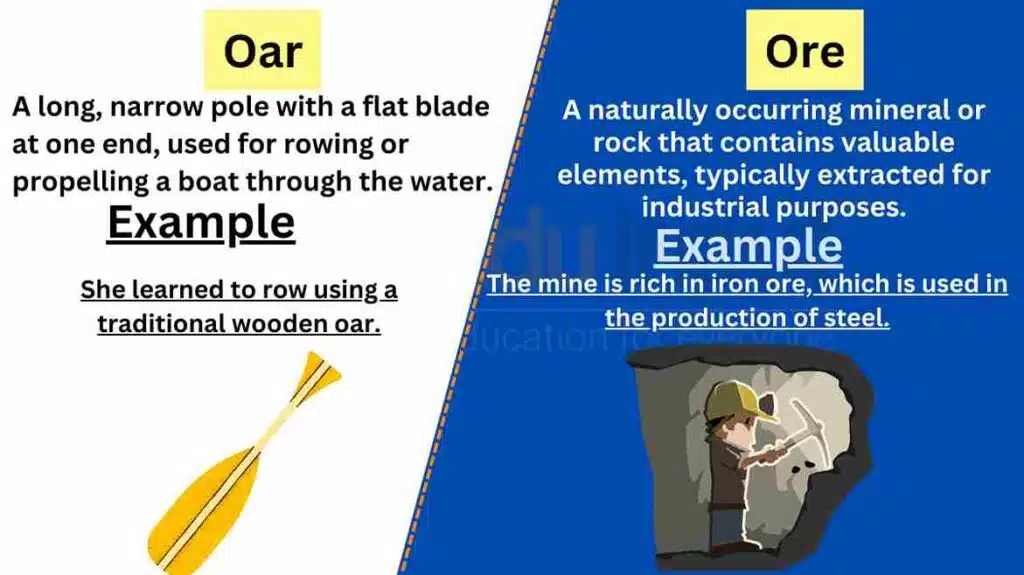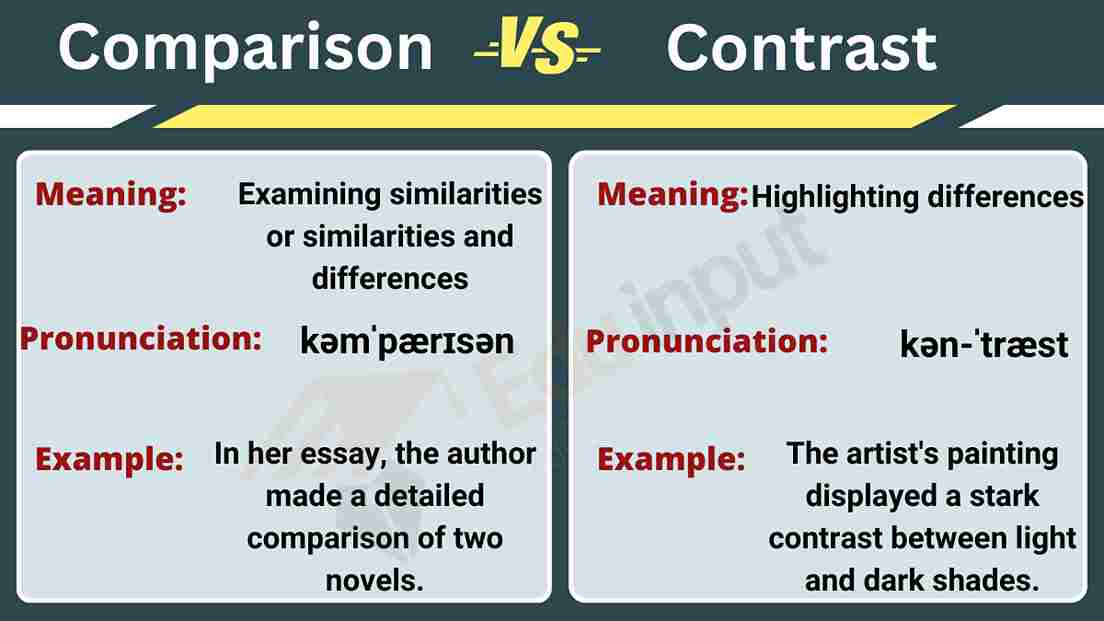Oar vs Ore-Difference Between And Examples
The English language often presents us with words that may sound similar but have different meanings and applications. Two such words that can cause confusion are “oar” and “ore.” Although they may sound alike, these terms have distinct definitions and usage.
This article aims to shed light on the differences between “oar” and “ore,” exploring their individual meanings and contexts. By understanding their unique connotations, we can enhance our language skills and avoid misunderstandings. Join us as we navigate the worlds of rowing and geology.

Meanings and Examples
Oar Meaning
The meaning of an “oar” is a long, narrow pole with a flat blade at one end, used for rowing or propelling a boat through the water.
Oar Examples
- “He gripped the oar tightly and rowed with all his strength.”
- “The team synchronized their oars to move the boat smoothly through the water.”
- “She learned to row using a traditional wooden oar.”
Ore Meaning
The meaning of “Ore” refers to a naturally occurring mineral or rock that contains valuable elements, typically extracted for industrial purposes.
Ore Examples
- “The mine is rich in iron ore, which is used in the production of steel.”
- “Gold ore is often found deep underground and requires extensive mining operations.”
- “Geologists analyze the composition of ore deposits to determine their economic viability.”
Difference Between Oar and ore
| Oar | Ore | |
| Meaning | Long, narrow pole used for rowing a boat | Naturally occurring mineral or rock containing valuable elements |
| Example | “He gripped the oar tightly and rowed with all his strength.” | “The mine is rich in iron ore, which is used in the production of steel.” |
| Usage | Boating, rowing, water transportation | Mining, geology, industrial processes |
| Context | Rowing, boating, water sports | Mining operations, geologic formations |
Usage in a Paragraph
The term “oar” finds its purpose in the realm of boating and water transportation. An oar is a long, narrow pole with a flat blade at one end, enabling individuals to propel and maneuver a boat through the water. Rowing enthusiasts rely on oars to synchronize their movements and generate the necessary force for forward propulsion. Whether it’s a leisurely row on a serene lake or a competitive rowing race, the efficient use of oars is crucial for achieving speed, control, and coordination on the water.
Conversely, “ore” takes us into the world of geology and industrial processes. It refers to naturally occurring mineral or rock formations that contain valuable elements or compounds. These elements, such as iron, gold, or copper, are extracted from ore through mining operations. Ores serve as essential raw materials for various industries, including metallurgy, construction, and manufacturing. Geologists analyze the composition and distribution of ore deposits to determine their commercial viability and facilitate responsible extraction.
While “oar” and “ore” may sound similar, they have distinct meanings and applications. “Oar” relates to the realm of rowing and boating, representing the essential tool for propelling a boat through water. It symbolizes teamwork, synchronization, and physical effort. On the other hand, “ore” belongs to the world of geology and industry, denoting naturally occurring mineral or rock formations that contain valuable elements. It plays a vital role in mining and serves as a crucial resource for various industrial processes.






Leave a Reply